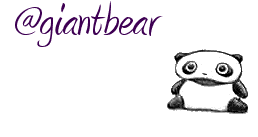What are your abilities?

Your own skills consist of the things you naturally do well.
Some people can build things while others can’t.
Some people can paint pretty pictures while others can hardly draw a stick figure.
Some people have a natural talent to do certain things while others just don’t.
Skills can be taught, but if you don’t have a natural talent for something, chances are that you are not going to be very good at it.
We are all able to learn some new skills. Sometimes our natural capability to do something specific plays a big role in learning a new skill, but if you don’t have a natural ability, extra knowledge and training can guide you into becoming a pro at certain things.
The fact is we are not all good at the same things. What a boring world it would have been if we were!
Skills can be divided into three different categories:
1. Natural skills/ Skills you were born with – like woodwork/painting
2. Transferable skills/ Those that you can learn – How to work a computer
3. Knowledge-based skills/ Those that you can train yourself to be good at for example writing.
How do you develop a new skill set?
1. When you want to learn a new set of skills it is important to set goals for yourself. Make a point to put in as much effort as possible to reach your goal. If you are determined to do something, then you will most probably be successful.
2. If you struggle, for goodness sake, find help. Find someone that can teach you how to do something properly. Google and YouTube might be available but there is nothing like a real-life person to explain and show you’re the finer detail.
3. Don’t give up if you cannot do it perfectly in one try. Failing is the only way to success. Try and try again. Try until you get it right. Just don’t give up until you are 100 % sure that you would rather give up than keep on trying. Quitting doesn’t make you a bad person, but a realistic one.
4. If you get your new skill under control, enroll in a more advanced course online, or even go and do a higher certificate to get yourself a better qualification.
5. Use your new skill by going job shadowing for a few weeks. This gives you great insight and will motivate you to continue or to quit. Sometimes a specific skill can help you a lot to land a new job, but you might learn that it is not so much what you expected.
Why do we want to improve our skill sets?
We should always want to better ourselves. Not having a specific skill can make you lose out on plenty of job opportunities.
Everything you learn can go on your CV and this can help you tremendously in finding a job.
Each and every person has a different set of skills they can bring to the table. If you improve on the skills that you lack this will give you a greater range of jobs to choose from.
Your own personal skillset depends on your interests, natural abilities, and your technical and personal qualities.
Different types of skill sets
The different type of skill sets include the following:
Soft skills: These include personality traits and allows you to work in a certain type of job. A person who doesn’t like people obviously doesn’t want to work in a place where they are in constant contact with people. Your soft skills, allows you to work in any type of job as they are transferable, and your personality goes with you at all times.
Some examples are leadership, decision-making skills, creativity, adaptability, etc. These are natural-born skills and cannot be learned in any way.
Hard skills: These are more technical skills, like building things with wood. These skills can be taught, and you can increase your hard skills by training or watching tutorials. Practicing is the keyword here, and the more you practice, the better you become.
Some examples are designing, carpentry, IT, accounting, copywriting, event planning, and marketing skills.
How do you determine your skills?
When you are looking for a new job, it is important to display your basic and relevant skills on your CV. Employers need to know why you are fit to do the job.
Before you create your CV, it is necessary to answer a few questions to determine the right set of skills to display on your CV.
1. Where do you receive the most compliments?
Do people praise you on your friendliness or perhaps the way you handle certain situations?
2. What do you enjoy in a workplace?
Do you enjoy talking to people or are you more of a quiet person? Can you solve problems, and can you communicate with others effectively?
3. Do you have any previous accomplishments that you can add to your CV?
Perhaps you have received awards or something similar in a previous job.
In all, make sure that the most important skills are displayed on your CV. Forget about writing essays to impress someone. If you have the correct skillset, you will most probably be invited to that interview.

